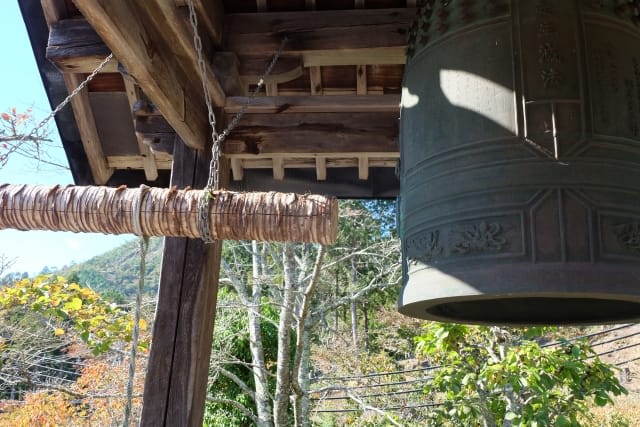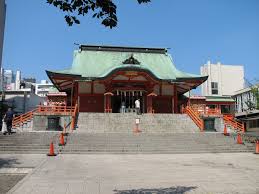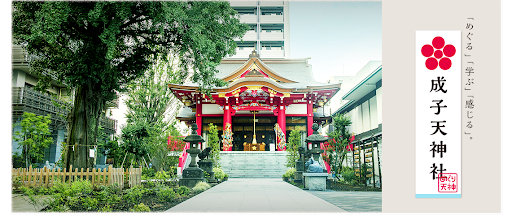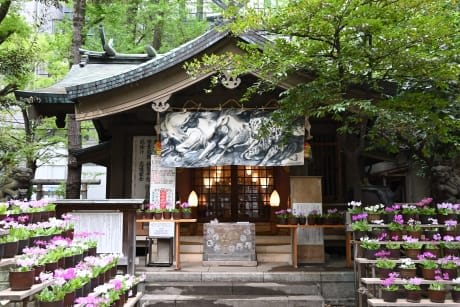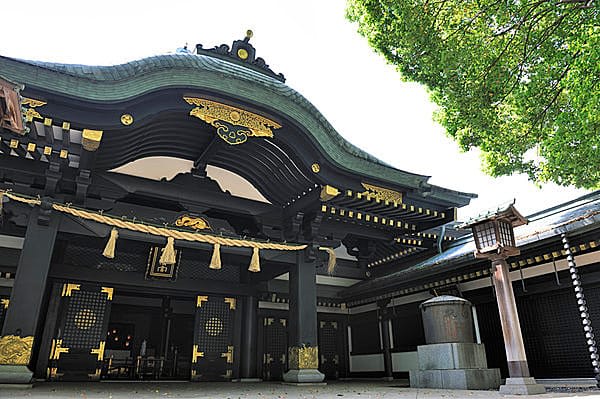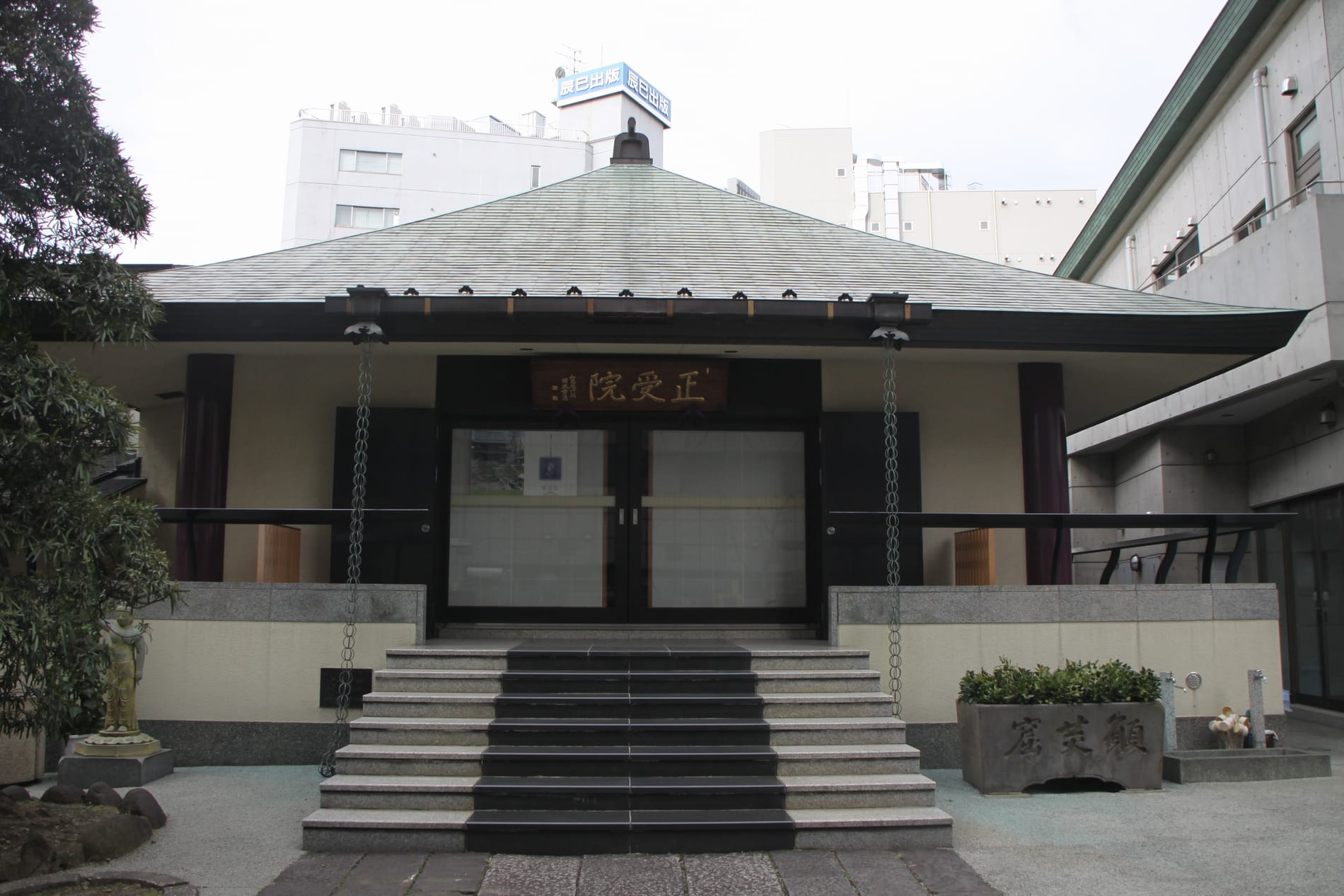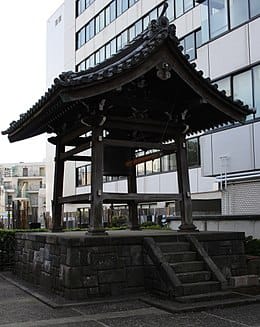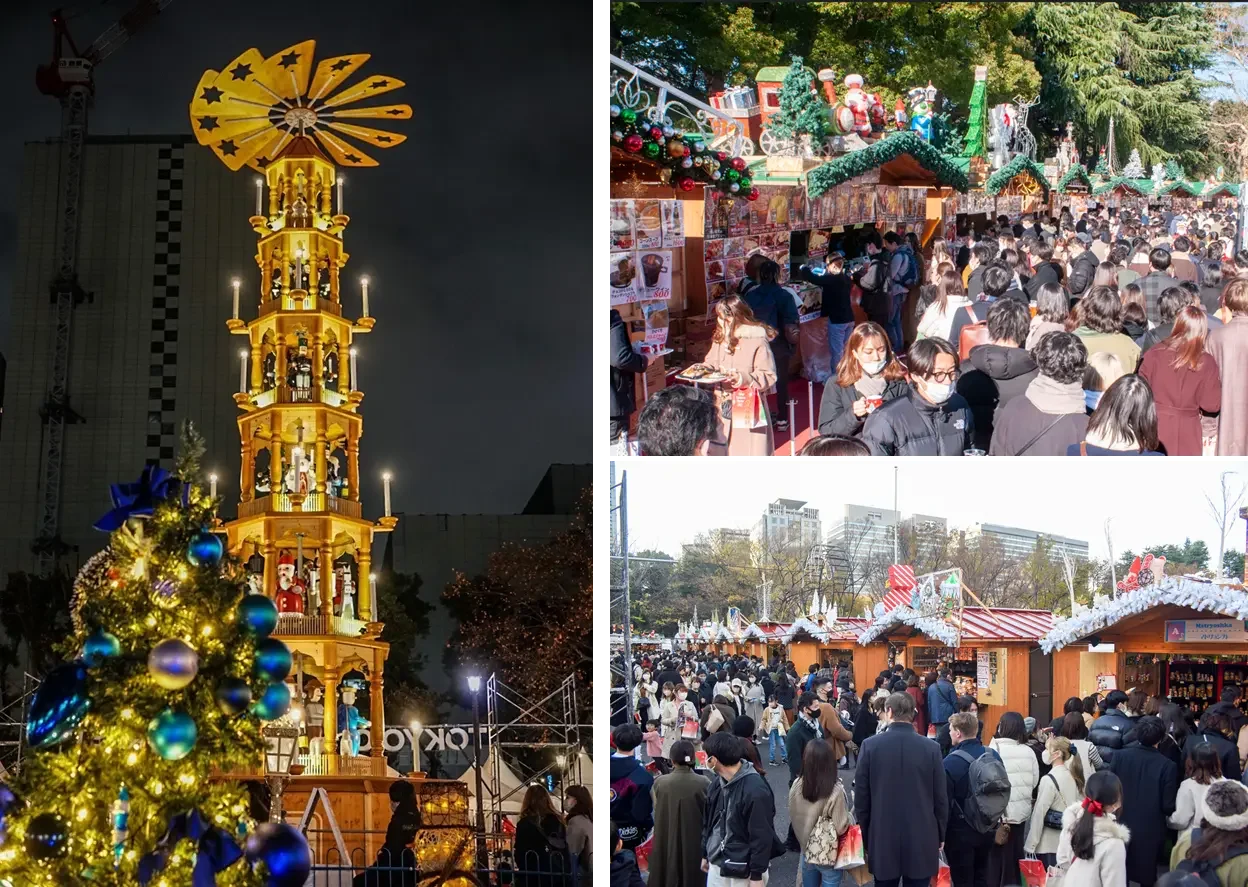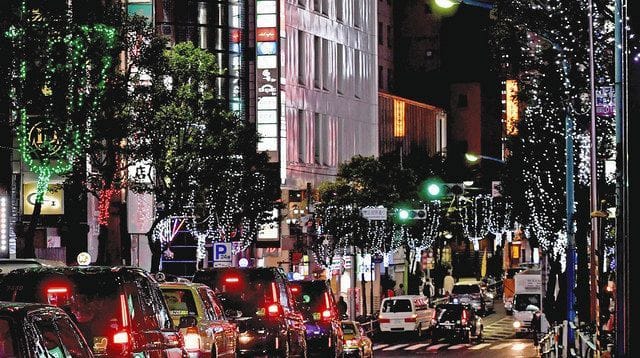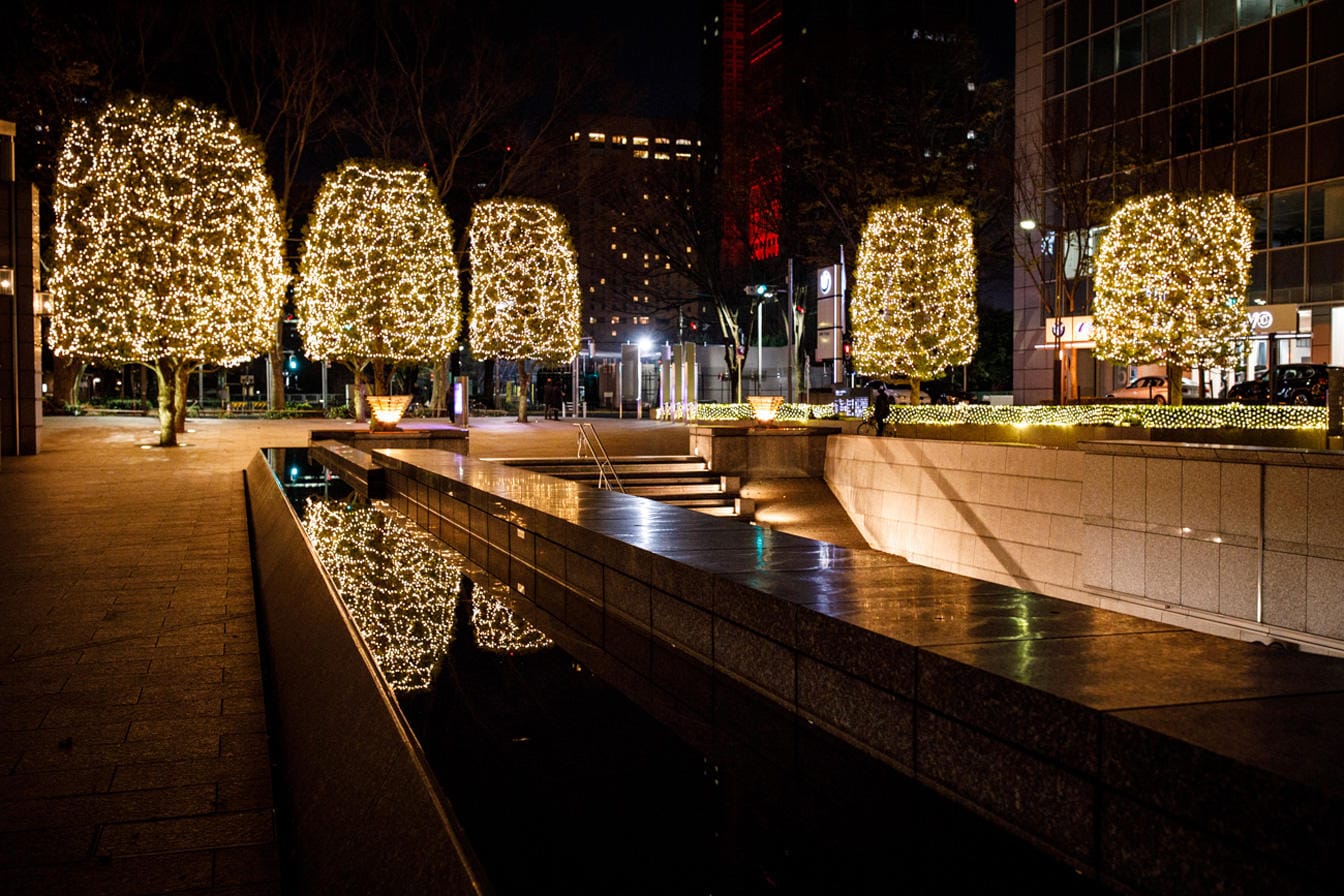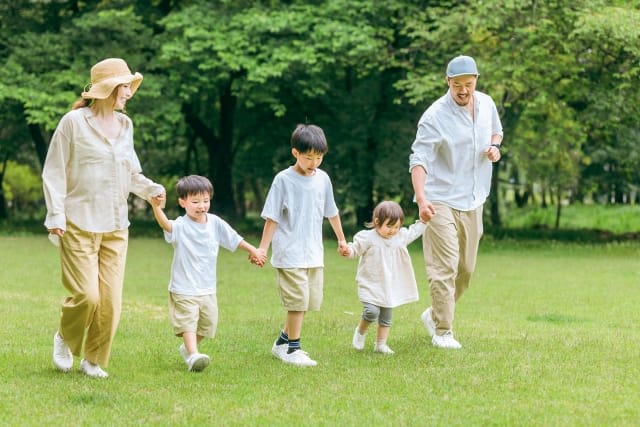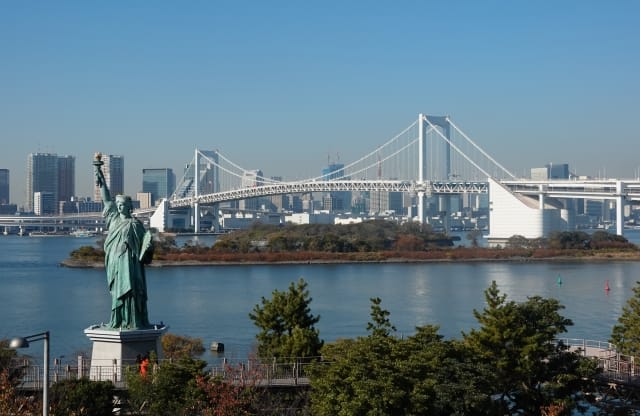Shinjuku in December 2024: Highlights, Events & Festivals
Shinjuku is Tokyo's busiest district, with JR Shinjuku Station boasting the world's highest passenger traffic. While Shinjuku is known for having one of Tokyo's largest business districts, it's also home to many historic temples. December is a vibrant season with Christmas celebrations and illumination events throughout the area. Additionally, temples host various ceremonies in preparation for the new year.
In this article, we'll introduce the events happening around Shinjuku in December 2024, including temple ceremonies and city events, along with their schedules and access information.
Table of Contents
- Traditional Events in Shinjuku: December 2024
- Special December Experiences in Shinjuku

Traditional Events in Shinjuku: December 2024
The Great Purification (Ooharai)
Ooharai is a ceremonial purification ritual that cleanses both sins and misfortunes (kegare/impurity) accumulated throughout the year, allowing people to welcome the new year with a pure heart.
During the ritual, people rub paper cutouts shaped like human figures (hitogata) against their bodies to transfer physical impurities and blow their breath onto them to transfer spiritual impurities. These figures are then burned to complete the purification. This ceremony occurs twice yearly, in summer and winter, with the winter purification taking place on December 31st.
Hanazono Shrine
Source: Wikipedia
Hanazono Shrine stands prominently among Shinjuku's skyscrapers. Established before 1590, this historic shrine once protected the Edo Bakufu (shogunate). Today, it's famous for bringing business prosperity and is deeply revered by Shinjuku's commercial community.
The shrine grounds (keidai) feature a majestic main hall built in 1965, the Itoki Inari Shrine reminiscent of Kyoto's Fushimi Inari torii gates, and the Geigyo Sengen Shrine dedicated to performing arts deities. Despite its central Shinjuku location, it offers a peaceful atmosphere with abundant greenery.
The shrine holds its annual Great Purification event on December 31st, 2024. Given its proximity to the famous Golden Gai dining district, it's worth visiting while exploring the area.
Information:
- Date: December 31st, 2024
- Access:
* 7-min walk from JR Shinjuku Station East Exit
* Direct access from Exit E2 of Shinjuku-sanchome Station (Tokyo Metro Marunouchi Line/Fukutoshin Line/Toei Shinjuku Line)
- Admission: Free
- Website: http://hanazono-jinja.or.jp/
Naruko Tenjin Shrine
Source: Official website
Naruko Tenjin Shrine, established in 903, has over 1000 years of history. Dedicated to Sugawara no Michizane, the deity of scholarship, it's particularly busy during exam seasons with students seeking blessings.
The shrine is known for its photogenic vermilion torii gates, entrance gates, and shrine buildings. The grounds feature charming statues of the Seven Lucky Gods (Shichifukujin), deities who bring good fortune. These friendly-faced statues create a peaceful atmosphere.
The shrine conducts its annual Great Purification ceremony on December 31st, 2024. With excellent access from Tokyo Metro stations, it's an ideal spot to purify yourself before the new year.
Information:
- Date: December 31st, 2024
- Access:
* 15-min walk from JR Shinjuku Station
* 2-min walk from Exit 1 of Nishi-Shinjuku Station (Tokyo Metro Marunouchi Line)
- Admission: Free
- Website: http://www.naruko-t.org/
Inari Kiou Shrine
Source: Shinjuku City
Inari Kiou Shrine, established in 1653, is a renowned power spot in Shinjuku. It is famous for its healing benefits, particularly for skin conditions like boils and eczema. When you offer tofu at the shrine, you receive a "Nade-mamori" (healing charm). It is said that if you rub the affected area with this charm while abstaining from eating tofu until recovery, your illness will be cured.
The small shrine grounds are enveloped in natural serenity. Notable attractions include the Fujizuka (a miniature Mount Fuji made from actual Mount Fuji lava rocks) and a large water basin carried by demon-shaped figures. The Suikinkutsu (water bell cave) provides soothing water sounds that heal your soul.
On December 31, 2024, Inari Kiou Shrine will hold its annual Great Purification ceremony. As a natural oasis in the heart of the metropolis, it's the perfect spot to refresh yourself during your visit to Shinjuku.
<Information>
Date: December 31, 2024
Access:
- 12-minute walk from JR Shinjuku Station Central East Exit
- 2-minute walk from Higashi-Shinjuku Station Exit A1 (Toei Oedo Line/Tokyo Metro Fukutoshin Line)
Admission: Free
Ana Hachiman Shrine Winter Solstice Festival
Source: tenki.jp
Ana Hachiman Shrine, founded in 1062, boasts over 1,000 years of history. Famous for bringing good fortune in business and financial matters, the shrine sells special "Ichiyouraifuku" charms during the winter solstice.
"Ichiyouraifuku" means that good fortune will return after a period of hardship. These charms are believed to bring financial prosperity and business success. During the winter solstice, many visitors come to obtain these special charms.
The shrine grounds come alive with food stalls and vendors, offering visitors a chance to experience the traditional Japanese festival atmosphere.
<Information>
Date: December 21, 2024
Access: 5-minute walk from Waseda Station (Tokyo Metro Tozai Line)
Admission: Free
Website: https://www.anahachimanguu.jp/
X (Twitter): https://x.com/anahachiman
New Year's Eve Bell Ringing
On New Year's Eve, temples perform the Joya no Kane (bell-ringing ceremony). It is believed that humans have 108 earthly desires (bonnou), and ringing the bell 108 times purifies these desires, allowing people to welcome the New Year with a clean slate.
The slowly resonating bell sounds have a purifying effect on the soul. Welcome the New Year by experiencing this traditional bell-ringing ceremony.
Shojuin Temple
Source: Wikipedia
You can hear the New Year's Eve bell ringing in Shinjuku. Shojuin Temple, established in 1594, is a historic temple that maintains a solemn atmosphere despite being located in the bustling downtown area.
The temple bell (Bonsho), manufactured in 1711, was once lost in 1942 to supply metal for the war effort. However, it was later discovered in the possession of the United States Navy and returned in 1962. Due to this history, Shojuin's bell is known as the "Bell of Peace" (Heiwa no Kane).
At Shojuin, the New Year's Eve bell rings from around 23:30 on December 31st into the New Year. Tourists are welcome to participate in the bell-ringing ceremony. Since the bell can only be rung 108 times, it's recommended to arrive early and line up from around 23:00 if you wish to participate.
<Information>
Date: December 31st, from around 23:30
Access:
- 13-minute walk from JR Shinjuku Station Central East Exit
- 5-minute walk from Shinjuku-sanchome Station on Toei Oedo Line/Tokyo Metro Fukutoshin Line/Marunouchi Line
Admission: Free
Tenryuji Temple
Source: Wikipedia
Tenryuji Temple, established in 1591, is a historic temple founded to protect the "demon's back gate" (an unlucky direction) of the Edo Shogunate. Originally built at a different location, it was moved to its current site in 1631.
While Shinjuku is known for its modern skyscrapers, the temple grounds feature traditional Japanese architecture and a cemetery. The intricately decorated main gate (Sanmon) is particularly impressive and not to be missed.
The current temple bell is Tenryuji's third, dating back to 1767. Like Shojuin's bell, it is considered precious as many temple bells were lost during wartime for metal supplies.
Around 23:30 on December 31st, the bell's sound can be heard even around JR Shinjuku Station. Welcome the New Year while listening to the bell and praying for peace.
<Information>
Date: December 31st, from around 23:30
Access:
- 5-minute walk from JR Shinjuku Station Central East Exit
- 5-minute walk from Shinjuku-sanchome Station on Toei Oedo Line/Tokyo Metro Fukutoshin Line/Marunouchi Line
Admission: Free
Special December Experiences in Shinjuku
Tokyo Christmas Market at Meiji Jingu Gaien
Source: PR TIMES
Japanese people love Christmas, and the streets become decorated with trees and wreaths as Christmas approaches. The Tokyo Christmas Market at Meiji Jingu Gaien is Japan's largest Christmas market.
The venue features over 50 shops selling goods and food, offering warm meat dishes and the Christmas market specialty "Glühwein." Daily live concerts by domestic and international artists add to the festive atmosphere.
The 14-meter-tall "Christmas Pyramid" is the market's symbol. Such a large Christmas pyramid can only be seen in Germany and Tokyo. At night, the illuminated venue creates a beautiful Christmas atmosphere.
While tickets are available on the day, advance reservations include an original mug. If your schedule is fixed, it's recommended to book in advance!
<Information>
Date: November 23rd - December 25th (2023 dates) 11:00-21:30
Access:
- 5-minute walk from Shinanomachi Station (Take JR Yamanote Line/Keihin-Tohoku Line to Akihabara, transfer to Sobu Line)
- 10-minute walk from Gaienmae Station on Tokyo Metro Ginza Line/Hanzomon Line
Admission: 1,000 yen (Nov 23-Dec 22) / 2,000 yen (Dec 23-25) (2023 prices)
Website: https://tokyochristmas.net/ (currently 2023 site)
X: https://x.com/tokyochristmas
Instagram: https://www.instagram.com/tokyochristmas/
Shinjuku Park Tower Winter Illumination
Source: Official website
Shinjuku Park Tower is the second tallest building in Shinjuku after the Tokyo Metropolitan Government Building. While Shinjuku is known for its towering skyscrapers, the north side of Park Tower features a lush park that serves as a beloved relaxation spot for Tokyo residents.
The Park Tower illumination begins on November 11. The fountain plaza area is decorated with 60,000 LED lights, creating a romantic atmosphere. With extended lighting hours, visitors can easily drop by whenever they have free time. The warm-colored illumination provides a cozy ambiance that brings peace to your heart.
The highlight is the view of the fountain from the "Confession Stairs" (Kokuhaku no Kaidan) leading underground. The water surface reflects the illuminated trees, creating a magical space. True to its name, it's a recommended spot for proposals!
<Information>
Duration: November 11, 2024 - February 14, 2025, 16:00-6:30 (next day)
Access:
- 12-minute walk from JR Shinjuku Station South Exit
- 8-minute walk from Toei Oedo Line "Tochomae" Station, Exits A4, A5
Admission: Free
Website: https://www.shinjukuparktower.com/
Shinjuku Kabukicho Ward Office Street Illumination
Source: Tokyo Shimbun
Kabukicho is a nightlife district that comes alive after dark, filled with izakayas, nightclubs, and cabarets. Every November, the main street (Ward Office Street) hosts a light-up event. Wine glass-themed illuminations decorate 90 street trees along the 700-meter stretch, adding extra glamour to the area.
While Kabukicho is known for its vibrant atmosphere, the elegant white illuminations provide a sense of tranquility. Since the lights stay on until early morning, we recommend enjoying the illuminations while experiencing Kabukicho's nightlife.
Although Japan is relatively safe, we don't recommend solo female travelers explore Kabukicho's back streets late at night. When walking at night, please stick to the illuminated main streets.
<Information>
Duration: November 1, 2024 - February 28, 2025, 16:30-4:00 (next day)
Access:
- 5-minute walk from JR Shinjuku Station Central East Exit
- Directly accessible from Higashi-Shinjuku Station on Toei Oedo Line/Tokyo Metro Fukutoshin Line
Admission: Free
Website: https://www.city.shinjuku.lg.jp/whatsnew/pub/2023/1101-02.html (2023 website)
